This conversation is part of a series of interviews with various brothers and teachers, including many fellow writers, all of which are part of the body of work surrounding my book-length memoir An Ordinary Disaster—one man's proof that we can all learn to listen to ourselves, and to act upon the inner voice of our self, our sanity and our soul.
Today, I'm talking with my old friend, Anthony David Adams. Anthony and I go back almost 20 years to when we were in grad school in Wisconsin and we've had a lot of adventures together since then. We've been down to Baja in my old F-250. We started a company called CreditCovers, and most recently we were in Corsica doing the GR20 over two weeks in May and June of this year.
“The psychotic drowns in the same waters in which the mystic swims with delight.” —
Joseph Campbell, Psychology of the Future
Anthony has done a lot of activism and therapeutic work with psychedelic medicine. He was the first person to administer underground MDMA on national television on a PBS series called the The Mysteries of Mental Illness, which came out in 2021. He now works providing coaching and advising for visionary leaders through a program called Earthpilot Alchemy.
Anthony is someone that has worked very hard to turn his own shadow into gold and he's a man that I truly love and respect, which is the main reason that I invited him to be here today. And—as much as I'm looking forward to my own book, I can't wait to read his, because there aren't all that many people who have successfully cured themselves of serious mental illness and lived to tell the tale.
If you’d like to listen to this show in your favorite podcast app, just paste this URL into where it says “add by URL” → https://api.substack.com/feed/podcast/25958.rss — further instructions are here.
Show Notes
“It takes work for us to be able to come around, to be able to appreciate our fathers.”
“Before there was a self, there was a relationship.” The self emerges from relationship → George Herbert Mead on the ‘social self’
When do we become a “man?” It feels like becoming an adult, and “a function of responsibility.” “I made a conscious decision to feel my emotions…” “I consciously took responsibility for my internal world and was able to assign and explore the meaning and the value in the difficulty of it.” “I think that's what being a man is—I think that that's what being an adult is. Being a man is becoming an adult in the male body.”
It can seem unlikely that a traditional ceremonial initiation into adulthood could be replaced by some modern thing that you just sign up for over the internet—but, it in our experience it does seem that there’s something very powerful in simply showing up and recognizing oneself as one of many others—many other men, or women, or people—who have all chosen to show up in that same way, and being accepted as one of that group, and in that moment being able to see oneself as one of them. No magic, and not even really any ceremony necessarily, in part because any ceremony that some sort of random dude from the internet might cook up would be unlikely to be very authentic anyhow. Our culture lacks ceremony, so we can’t just create it out of thin air. That very simple experience of showing up and joining, being accepted, and being seen can have a lot of power.
“The magic is in the divinity is in the humanness, and in the vulnerability of your presence.”
On moving through psychosis and depression, and taking it on as his dharma:
“There was a specific moment where I said [to myself], ‘you've been diagnosed with this thing and you can choose—this diagnosis can be your dharma or your dogma.’”
“if you choose to take it on, completing that journey will be beneficial, not just for you, but for other people—you'll wear the path a bit more [so] that somebody else might be able to go deeper into themselves and come through it.”
…recognizing psychosis as an alternate state of being: other guys “…spend a bunch of money to go into the jungle and experience a state of consciousness for a weekend that you might experience just by breathing in a certain way.”
“the psychotic or the schizophrenic is the one who is willing to sit at the seat at the table, no one wants to sit at.” “…there's a shamanic phenotype…”
That was the journey, “to move past the rejection, from diagnosis into gnosis…” “Becoming a functional person, becoming human…”
it “wasn't just about some ongoing mental health coping. That was not the game that I'm playing.” “I really do feel so grateful to be alive. And just so like with so much possibility, and even in the mundane shitiness of life, there's a beauty and an opportunity to just take it on as grist for your spiritual journey.”
I had a similar experience in changing my relationship with alcohol. There was a moment that I realized that I no longer enjoyed the effects of alcohol, and that I could see the possibility of moving past it. And once I could see that possibility, then there was a pretty rapid shift that I experienced just in moving into a new normal. There was no white knuckling or great use of willpower involved. Drinking alcohol was very closely tied to a long standing low level chronic depression.
“This is the cliché that we're kind of sold early in life, but that no one really demonstrated.”
“…you get good at what you do. And so, if you practice something negative, you get good at that too.”
‘Nature boner’ → “bursting with energy and excitement”
The practice of actual, physical wayfinding and how that attunes us finding our way in the world, and builds real confidence in things working out.
Making things “medicine”. Doing the bus work, the van work, the goat work, and the clown work. When you have myth in your life, there's something deeper to connect to.
Anthony and I doing the goat work up on the Mammoth Crest, looking very alive after swimming in the 11,000’ mountain lake that’s just over his shoulder.
You can find Anthony David Adams at anthonydavidadams.com. His Instagram is @majikbus.co and his Alchemy coaching program is here.
New here? Please make sure that you’re subscribed—and remember, paying subscribers get buttons!
Dig this? Please share with someone else who will too.
Further reading
Check out my writing on the subjects of depression, purpose, and wayfinding, as well as:
PBS: The Mysteries of Mental Illness: EP4 New Frontiers
Andrew Horn → We Junto: A Community for Modern Men’s Work
George Herbert Mead on the ‘social self’
Dr Martin Shaw and his Mystery School storytelling course
The Corsica GR20 — intro and day 1
Now I’ve got some questions for you…
Have you struggled with depression, bipolar, psychosis, or other non-“standard” states of mind?
Do you have a sense of your own dharma, that is, the work that you were sort of voluntold to do in being born?
What is your sense of what it means to become a man, or a person, or an adult?
What is the medicine that you are making in your own life, for yourself, and for others?

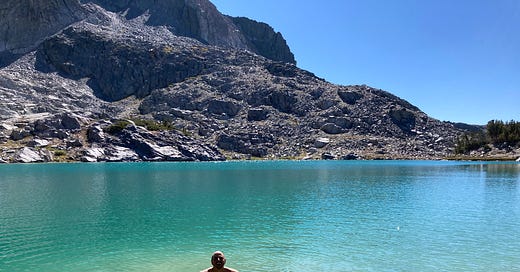




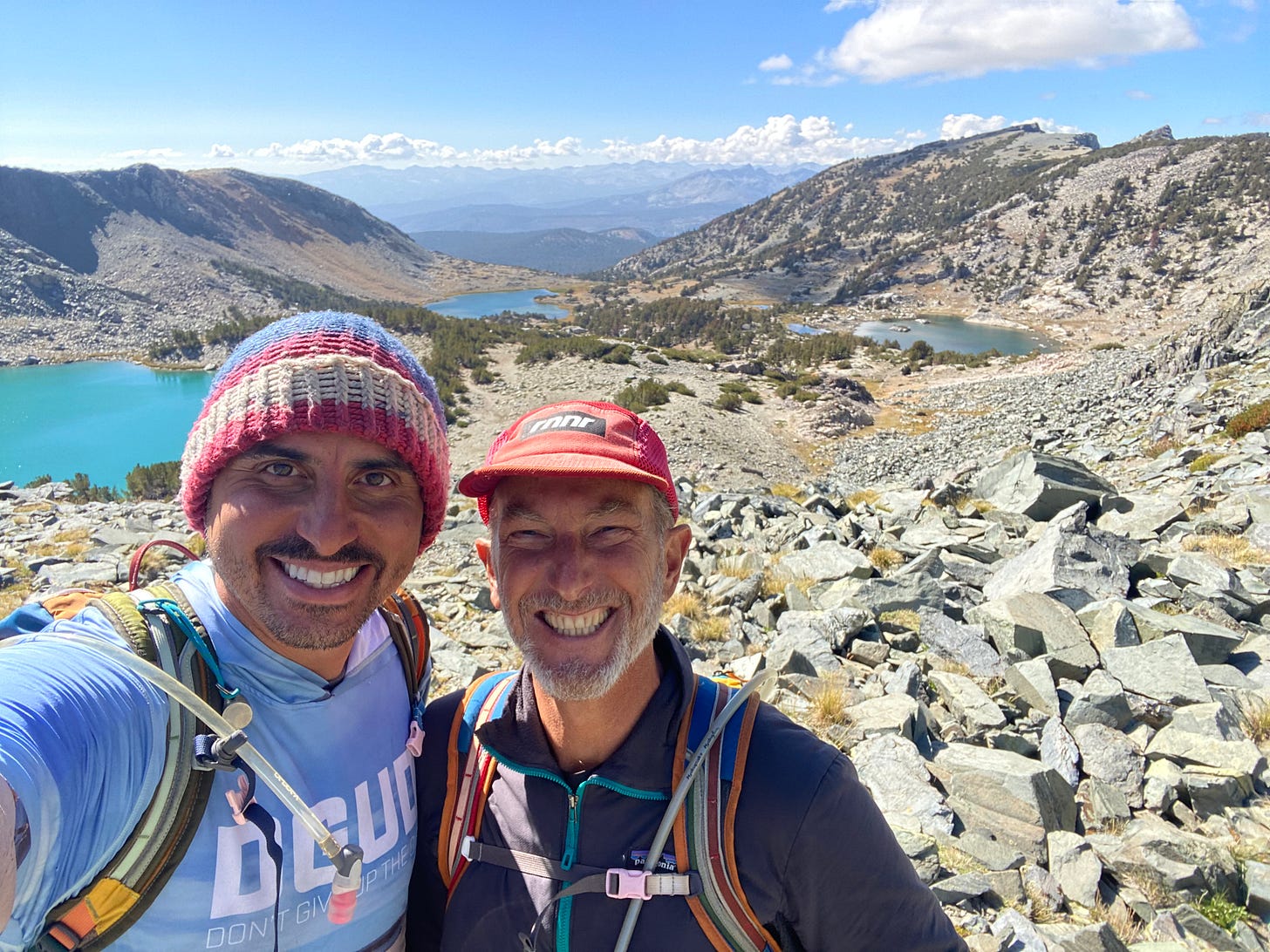
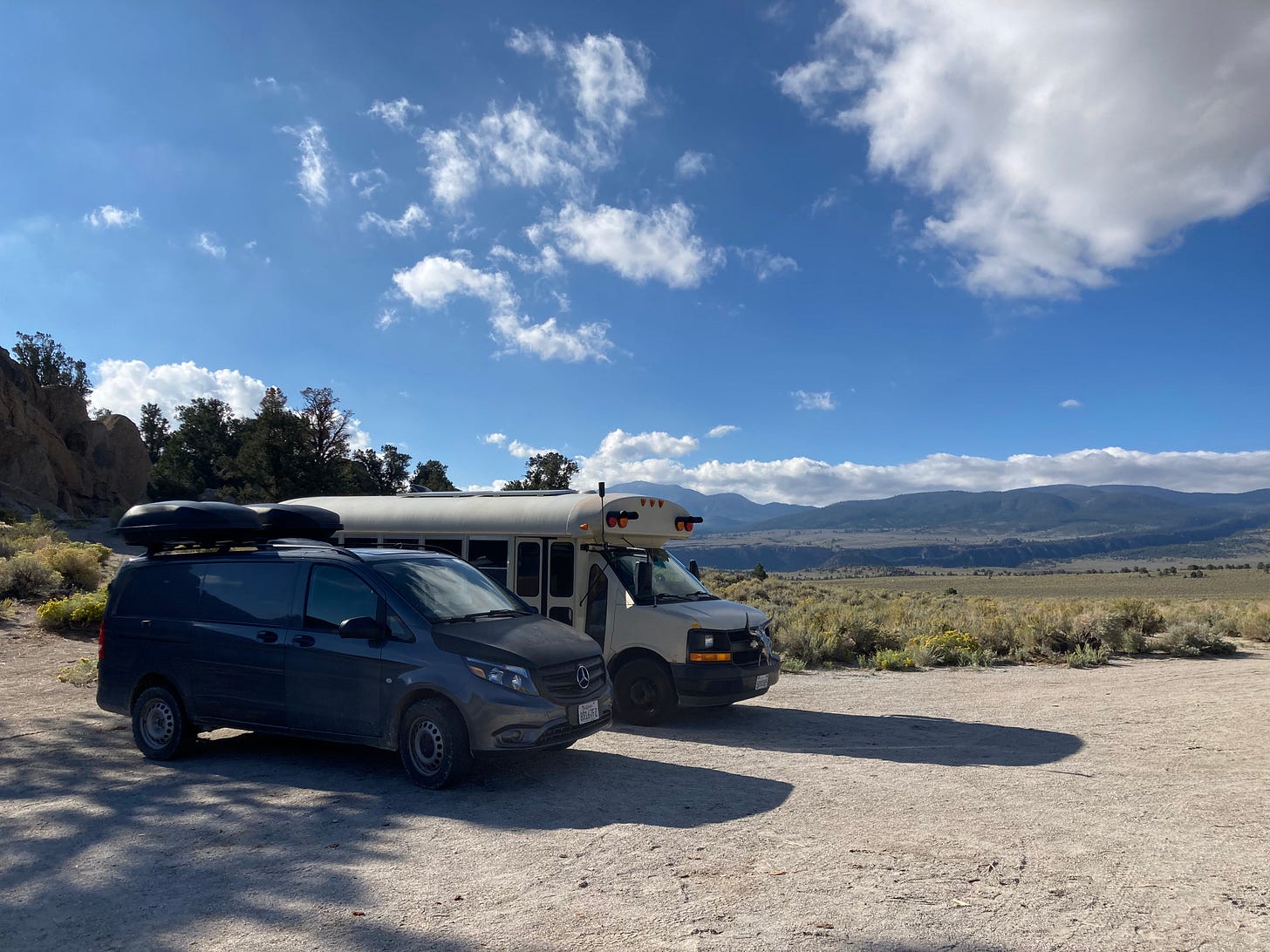



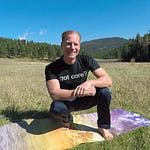


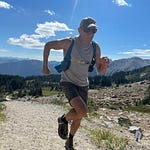

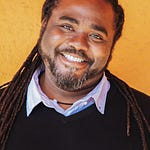
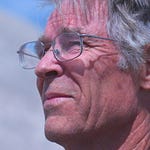
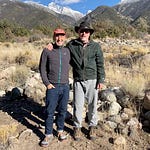
Share this post